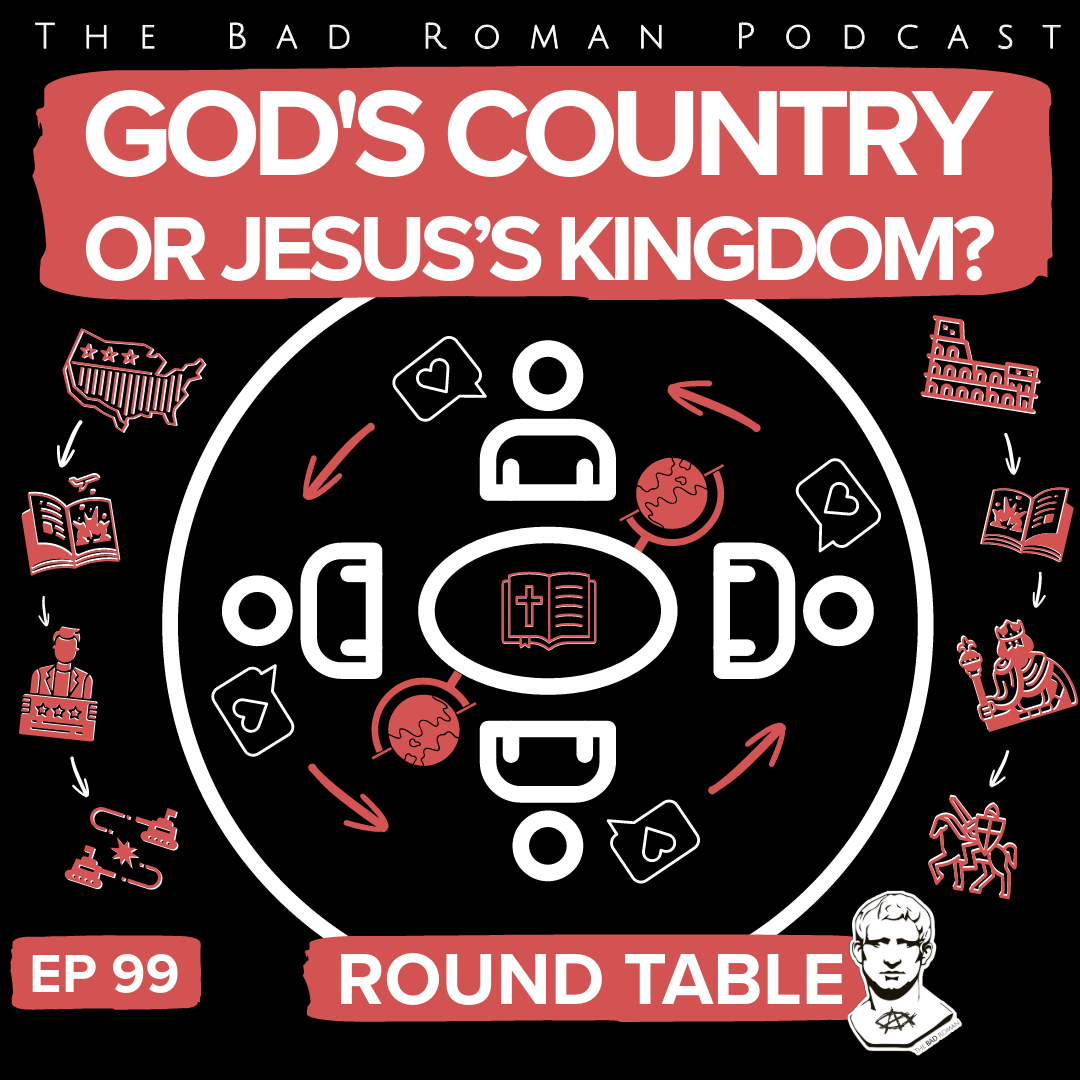About this Episode
In this episode of the Bad Roman podcast, host Craig Harguess speaks with Claire Dalton, the host of the Clarity podcast. Claire shares her journey of leaving the LDS Church, her battle with chronic Lyme disease, and her views on the influence of government and institutional corruption. This episode explores faith, freedom, and the pursuit of truth, offering listeners a comprehensive understanding of these issues.
Claire begins by discussing her background, including her upbringing in Utah within the mainstream LDS Church. She delves into the cultural and religious environment she grew up in and the factors that led her to question and eventually leave the LDS Church. Claire also shares her professional experiences as a farmer, nonprofit president, and sales representative, explaining how these roles have shaped her perspectives and contributed to her current projects.
A significant portion of the conversation addresses common misconceptions about Mormonism, particularly the belief that polygamy is a central tenet of the faith. Claire provides historical context and evidence to challenge these mainstream LDS teachings, arguing that the original teachings of Joseph Smith did not endorse polygamy. She also highlights the experiences of those who leave the LDS Church to follow Christ, differentiating them from those who leave religion entirely, and discusses the importance of creating platforms to share their stories.
Claire's personal and family struggles with chronic Lyme disease are another focal point of the episode. She details the symptoms, misdiagnoses, and the long journey to finding the correct diagnosis for both herself and her mother. The conversation delves into the controversial origins of Lyme disease, including theories about government involvement and bioweapon experiments. Claire discusses the historical context, such as Operation Paperclip and the release of weaponized ticks, and criticizes the medical system for its inability to properly diagnose and treat chronic illnesses like Lyme disease. She shares her journey of seeking alternative treatments and emphasizes the importance of partnering with God for healing.
The episode also explores the influence of government and institutional corruption. Claire argues that government control has infiltrated numerous sectors, including the food industry, education, the medical system, and even religious institutions. She provides examples of how this corruption manifests and its effects on society. Claire argues that statism is inherently satanic, highlighting how government control contradicts Christian teachings and discussing the importance of recognizing and resisting this influence to live a life aligned with Christ's teachings.
Faith and freedom are central themes throughout the episode. Claire and Craig emphasize the significance of the message "No King but Christ" in contemporary Christianity, discussing how this principle guides their lives and the importance of prioritizing Christ over state and institutional allegiances. Claire shares her vision for creating authentic Christian communities that are not bound by traditional church structures, advocating for home churches and genuine fellowship centered around Christ's teachings.
Listeners will gain insights into the personal and spiritual challenges faced by those who leave the LDS Church and seek to follow Christ. They will learn about the controversial origins of Lyme disease, the failures of the medical system, and the importance of seeking alternative treatments. The episode also provides an understanding of the influence of government in various aspects of life and its implications for personal freedom and societal well-being. Finally, listeners will discover the importance of prioritizing Christ over state and institutional allegiances and the value of building authentic Christian communities.
This episode explores the intersections of faith, health, and societal structures, providing listeners with insights and encouraging them to question and explore their own beliefs and experiences. Claire's storytelling, combined with Craig's questions, makes this a valuable listen for anyone interested in the complexities of faith, freedom, and truth.
Connect with Claire Dalton:
Claire Dalton's website
Follow Claire on social media: Facebook @forgedinhisfire and Instagram @forgedinhisfire
Episode Timestamps:
Timestamps:
1:04 Guest Introduction
Claire Dalton shares her background: raised in Utah, former LDS member, farmer, nonprofit president, and sales representative.
Claire's journey from mainstream LDS to her current faith and projects.
2:22 Entanglement of Churches with the State
Discussion on how the events of 2020 revealed the deep entanglement of many churches with the state.
Claire's observations on the disillusionment of many Christians with their churches during this period.
1:41 Claire's Personal Journey
Claire's story of leaving the LDS church and starting her podcast.
The importance of sharing stories of those who leave the LDS church to follow Christ.
5:28 Misconceptions about Mormonism
Claire addresses common misconceptions about Mormonism, including the belief that Joseph Smith practiced polygamy.
Historical evidence and personal beliefs that challenge mainstream LDS teachings on polygamy.
26:35 The Impact of Chronic Illness
Claire's personal and family experiences with chronic Lyme disease.
The political and controversial history of Lyme disease, including its origins and the government's role.
30:18 Critique of the Medical System
Discussion on the failures of the medical system to address chronic illnesses effectively.
The role of vaccines and other medical interventions in exacerbating health issues.
53:04 Statism and Its Influence
Claire and Craig discuss the pervasive influence of statism in various aspects of life, including food, education, and healthcare.
The idea that statism is inherently satanic and contrary to Christian teachings.
59:20 Closing Remarks
Seek the truth and question the systems they are part of
The importance of community and supporting those who are chronically ill or marginalized.
Craig and Claire reflect on the importance of living out Christian values authentically






































